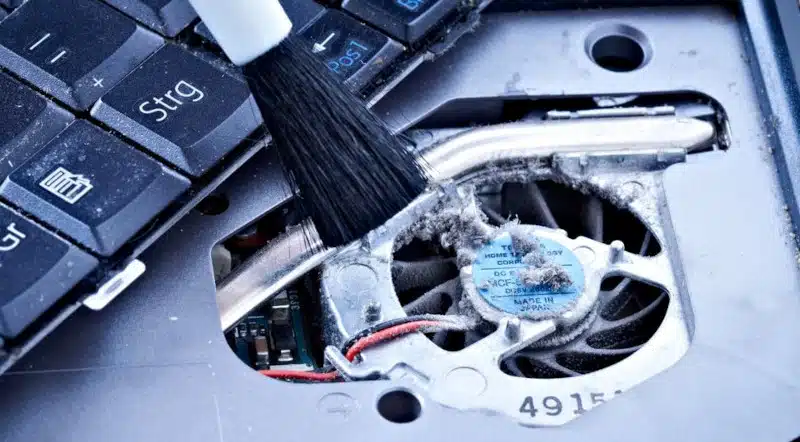Laptops have become a crucial part of our daily routine, but overheating is a persistent issue many laptop users face. Overheating not only causes discomfort but can also harm the performance and lifespan of your laptop. This blog post will explore why laptops are prone to overheating and how to prevent it.
The compact design of laptops is one of the main reasons for overheating. The limited space inside the computer makes it challenging to dissipate heat, especially when the high-powered components generate a lot of heat. When the temperature inside the laptop exceeds a certain level, the internal parts can get damaged, leading to a decline in performance or permanent damage.
Main Contributors of Overheating
The central processing unit (CPU) is a significant contributor to overheating. The CPU is responsible for executing most of the instructions on the laptop, and the heat generated during this process is substantial. The CPU’s heat is dispersed through a fan and heatsink system. The laptop’s small size often makes it difficult for the cooling system to keep the temperature within safe limits, especially when it is clogged with dust.
Another component that generates heat is the graphics processing unit (GPU). The GPU is responsible for rendering images and videos and can create a lot of heat when it’s heavily utilized. Like the CPU, the GPU’s heat is dispersed through a fan and heatsink system, but the limited space inside the laptop makes it challenging for the cooling system to maintain safe temperatures.
The build quality of the laptop also affects overheating. Cheaper laptops may have poorly designed cooling systems or low-quality materials that don’t effectively dissipate heat. For example, dry thermal paste. On the other hand, high-end laptops may have better cooling systems and materials that can effectively dissipate heat, but they still may overheat under heavy loads.
So, what can you do to prevent overheating in your laptop? Here are some of the measures you can take to reduce the risk of overheating:
Laptop Overheating Prevention
- Use a laptop cooling pad. A cooling pad is a device that sits underneath the laptop and provides extra cooling. It often has fans that help to dissipate heat away from the computer, and the elevated position also improves air circulation around the laptop.
- Clean the vents of your laptop regularly. Dust and other debris can accumulate in the vents, blocking airflow and causing overheating. Cleaning the vents is an easy task that can be done with a can of compressed air.
- Reduce the load on your laptop by closing unnecessary programs and background processes. When your laptop is not under heavy load, it will generate less heat, reducing the risk of overheating.
In conclusion, laptops are prone to overheating due to their compact design and high-power consumption. Overheating can cause severe consequences for the performance and lifespan of your laptop. Still, there are several measures you can take to prevent it, including using a laptop cooling pad, cleaning the vents of your laptop regularly, and reducing the load on your laptop.
(Check out my other post: How To Diagnose An Overheating Laptop)
It’s essential to be proactive about preventing overheating in your laptop. Don’t wait until it’s too late – take action today to avoid overheating and protect your valuable investment.
Laptop overheating? Contact me today.


